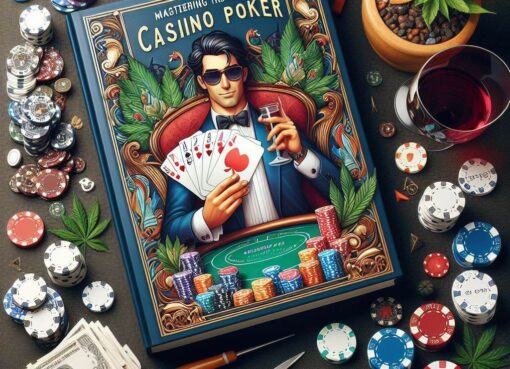Mastering the Bluff: Psychological Tactics in Casino Poker

In the competitive world of casino poker, mastering the art of bluffing is a critical skill that can tilt the odds in your favor. Bluffing is not just about deception; it’s a comprehensive psychological tactic that involves understanding human behavior, recognizing patterns, and executing strategies with precision. In this article, Mastering the Bluff Psychological we’ll delve into the psychological intricacies of bluffing and how you can use them to your advantage in casino poker.
Understanding the Psychology of Bluffing
Bluffing is essentially a game of wits played within the larger game of poker. To bluff effectively, you must first understand what drives your opponents’ decisions. Are they risk-averse or risk-takers? Do they play conservatively or aggressively? Answering these questions can help you tailor your bluff to be more effective against specific opponents.
Reading the Table
Observation is your best tool in poker. Before attempting a bluff, spend time gauging the mood and style of play at the table. Look for cues in body language, Mastering the Bluff Psychological betting patterns, and even the conversation to gauge how players react to different situations. This information is invaluable because it tells you when players are likely to fold or call your bluff.
Timing Your Bluff
The success of a bluff often hinges on timing. A well-timed bluff can convince opponents to fold even when they hold superior hands. Key moments to consider bluffing include:
- When the community cards don’t appear to help anyone’s hand significantly.
- After you’ve consistently portrayed a strong image by betting aggressively in previous rounds.
- When facing fewer opponents, as bluffing against fewer people increases the chances of everyone folding.
Projecting Confidence
Confidence is contagious, and in poker, it can be the difference between a successful bluff and a failed one. When you decide to bluff, commit to it fully. Bet with confidence and maintain your poker face. Any hesitation can be perceived as weakness, which can prompt opponents to call your bluff.
Psychological Warfare
Bluffing can also be used as a tool for psychological warfare, aiming to unsettle and confuse your opponents. For instance, changing your playing style abruptly can throw other players off and make it difficult for them to predict your moves, creating an ideal backdrop for a successful bluff.
Handling the Bluff’s Aftermath
Whether your bluff is successful or not, it will have consequences. A successful bluff can enhance your table image and instill fear in your opponents, making them more cautious in future hands. On the other hand, if caught, prepare to face more challenges as opponents may perceive you as reckless or deceptive and adjust their strategies accordingly.
Ethical Considerations
While bluffing is an accepted part of poker, it’s essential to maintain ethical boundaries. The goal is to win through strategy and skill, not to manipulate or coerce in ways that detract from the game’s integrity.
Conclusion
Mastering the bluff in casino poker requires an amalgamation of keen observation, impeccable timing, and the courage to take calculated risks. By understanding and implementing the psychological tactics discussed, you can enhance your poker playing style and increase your chances of success at the poker table. Remember, poker is not just about the cards you are dealt; it’s about how well you play the hand you’re given.
Read More: Mastering the Bluff: Psychological Strategies in Casino Poker


